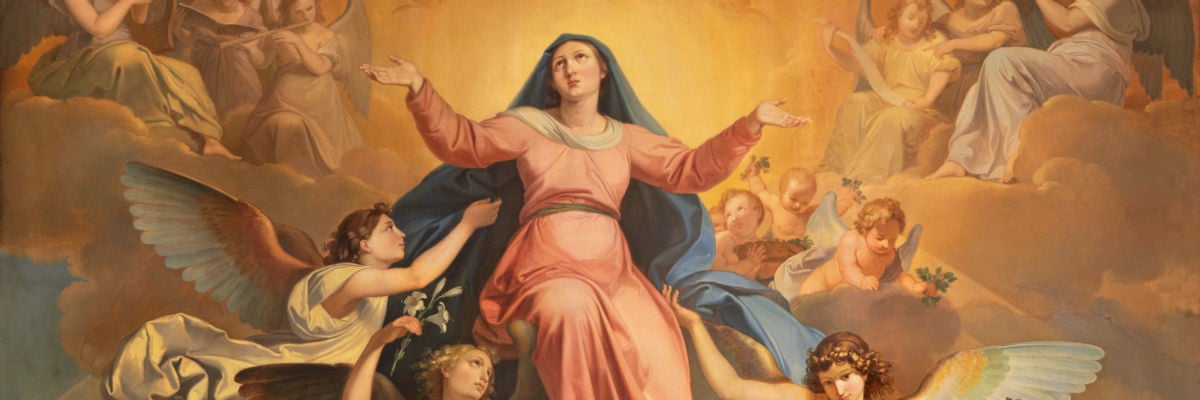
Question:
Answer:
There is solid historical evidence that the early Church believed in the Blessed Mother’s Assumption. For example, though there are two tombs associated with Mary in Jerusalem and Ephesus, respectively (two places that she lived), there is no testimony regarding her postmortem body and related relics. This is striking, because Jesus had no greater disciple than his Mother and yet, unlike other saints of the early Church, including St. Peter, there is zero historical evidence regarding relics of Mary.
This absence of relics in particular and the Blessed Mother’s body in general illustrates the early Church believed Mary was indeed assumed into heaven, body and soul.
In St. Epiphanius’ classic Panarion (“bread box”) or Refutation of All Heresies, written about AD 350, this early Church Father affirms belief in the Assumption:
Like the bodies of the saints, however, she has been held in honor for her character and understanding. And if I should say anything more in her praise, she is like Elijah, who was virgin from his mother’s womb, always remained so, and was taken up, but has not seen death (Panarion 79).
“St. Epiphanius clearly indicates his personal agreement with the idea that Mary was assumed into heaven without ever having died,” notes Tim Staples, Director of Apologetics at Catholic Answers. “He will elsewhere clarify the fact that he is not certain, and no one is, at least not definitively so, about whether or not she died. But he never says the same about the Assumption itself. That did not seem to be in doubt. By comparing her to Elijah he indicates that she was taken up bodily just as the Church continues to teach 1,600 years later” (emphasis original).
However, why didn’t the earliest Church Father address the Assumption? Staples notes this teaching wasn’t an issue for them. Because the doctrine wasn’t being attacked, it didn’t need to be defended.
For more on this topic, see Staples’ article, “The Assumption of Mary in History.”



